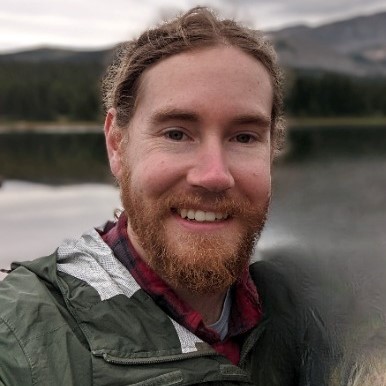Michael Hoefer
Welcome
I am an Assistant Professor of Computer and Information Sciences at The University of St. Thomas in St. Paul, Minnesota.
Previously, I finished a dual PhD in computer science and cognitive science at CU Boulder, and worked in the TMI lab advised by Professor Stephen Voida.
My research focus is in human-computer interaction and human-AI interaction, and in particular, personal informatics. I design, build, deploy, and evaluate reflective personal informatics systems that support meaningful reflection, in domains ranging from health and mood, dreams, time-use, needs, values, and virtues. I am particularly interested in studying how technology can support (and not hinder) personal development. I am also a founding member of the SPIRITED Collective, a research collaborative working at the intersection of design, technology, and spirituality/religion.
In a former life I worked as an industrial engineer and data scientist for Boeing and completed a masters in industrial engineering using machine learning for manufacturing and mechanical design.
News
2025
March
- Will be traveling to Cagliari, Italy for ACM Intelligent User Interfaces 2025
- Presenting a full paper, “TellTime: An AI-Augmented Calendar with a Voice Interface for Collecting Time-Use Data”
- Participating in a workshop, Strengthening Engineering Psychology for Human-AI Interactions (STEP-HAI)
2024
December
- Awarded an Innovation Fellowship for a project to improve intro computing course operations at St. Thomas
November
- Co-authored a panel at ACM CSCW 2024, “(Un)designing AI for Mental and Spiritual Wellbeing”
August
- Started a faculty role at the University of St. Thomas, in St. Paul, MN
June
- Defended my dissertation
February
- Co-authored a paper at ACM Tangible Embedded and Embodied Interaction (TEI) 2024, which won an Honorable Mention award
2023
July
- Published a full paper (LINK) at Designing Interactive Systems (DIS) 2023
June
- Attended the Human Computer Interaction Consortium (HCIC) and briefly presented my work titled Personal Informatics as a Multi-Scale Mirror: Aligning Lifestyles with Human Values
May
- Proposed my dissertation work about Personal Informatics for Personal Development.
April
- Published a late-breaking work at CHI 2023, titled *Tracking the Experience of Self in Everyday Life
January
- Teaching CSCI 1300 again this spring.
2022
August
- Excited to teach CSCI 1300 again this fall, this time with 360 students!
July
- Published an interactions article about Faith Informatics
May
- Attending CHI 2022 in person – email me if you’re going and would like to meet up!
- Full paper: Personal Dream Informatics: A Self-Information Systems Model of Dream Engagement
- Short paper + poster (late breaking work): Visualizing Uncertainty in Multi-Source Mental Health Data
- Workshop paper for Integrating Faith, Religion, and Spirituality in HCI: Faith Informatics: Computing for Development Through Stages of Faith
- Workshop paper for Self-Determination Theory in HCI: Shaping a Research Agenda: Interfacing with Representations of the Self and Needs
2021
- 8/26 - Presented a poster, A Network Visualization of Sustainable Consumption Corridors at IEEE VIS 2021. Extended Abstract
- 8/25 - Gave a lightning talk, Representing Systems of Need and Satisfaction at the Vis4Good workshop at IEEE VIS 2021.
- 7/23 - Finished teaching my first course, CSCI 1300: Introduction to Programming, a hybrid online/in-person course covering the basics of computational thinking and C++.
- 7/7 - Attended Networks 2021 and:
- 6/28 - Presented our paper, The Multiplicative Patient and the Clinical Workflow: Clinician Perspectives on Social Interfaces for Self-Tracking and Managing Bipolar Disorder at DIS 2021.
- 4/30 - Presented a lightning talk to ICS, Assessing Human Need at Scale.
- 4/8 - Awarded a seed grant from the Institue of Cognitive Science (ICS) for my project Exploring a Participatory Network Methodology for Assessing Human Need.
- 3/5 - Presented a poster at the CU Boulder Computer Science Annual Research Expo, A Census of Human Need: Developing a Comunity Informatics Platform to Systematically Assess Human Need and Satisfaction.
- 1/7 - Honored to be awarded a Beverly Sears Graduate Student Grant for my project Toward Personal Dream Informatics: Exploring the Self-Tracking of Dreams
2020
- 9/20 - My hackathon project, Empowering Interpersonal Informatics won the Social Impact Track at CU’s Hack4Impact Hackathon.
- 7/19 - Presented Networks for Understanding Human Need @ IC2S2
- 5/6 - Finished my first year!
